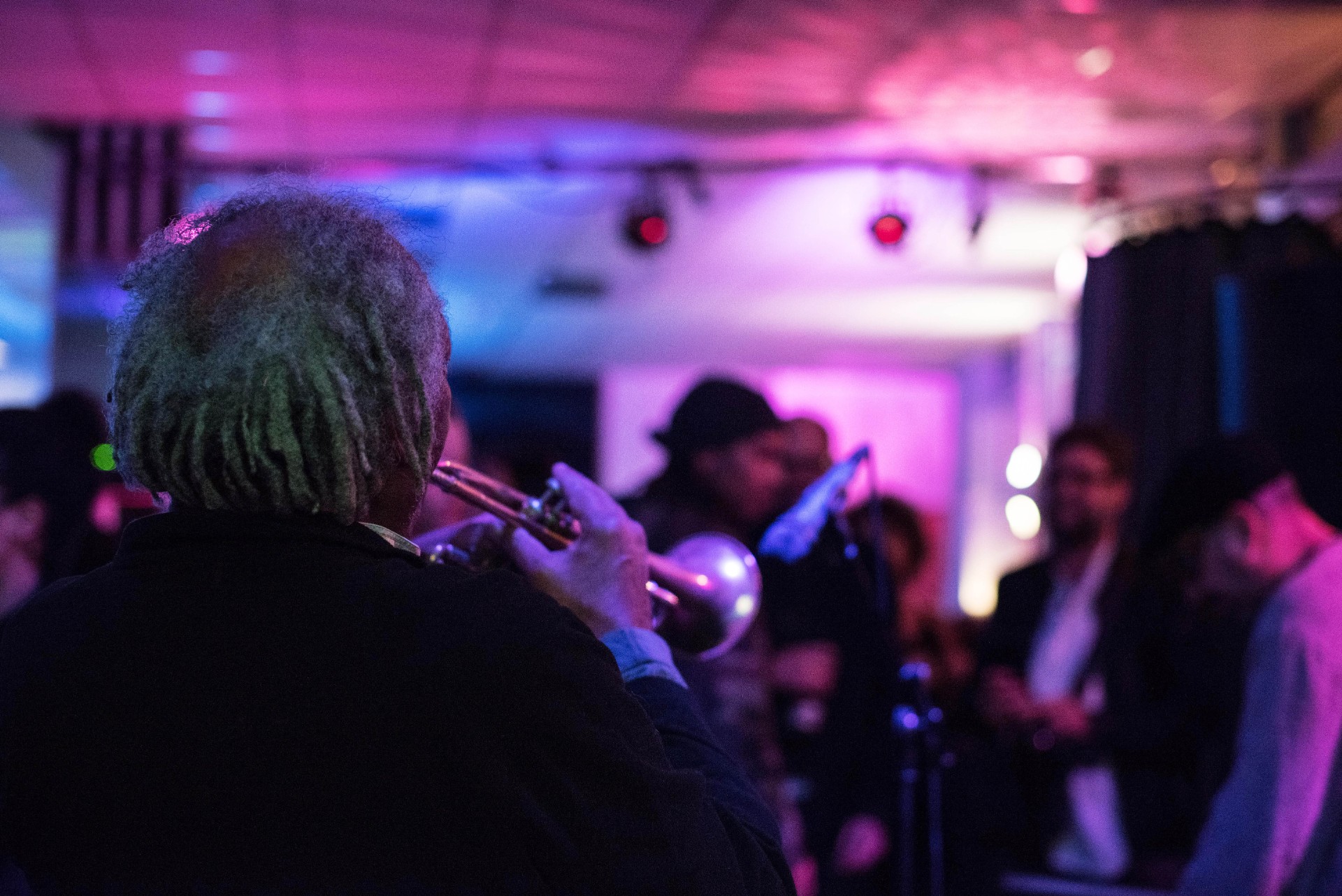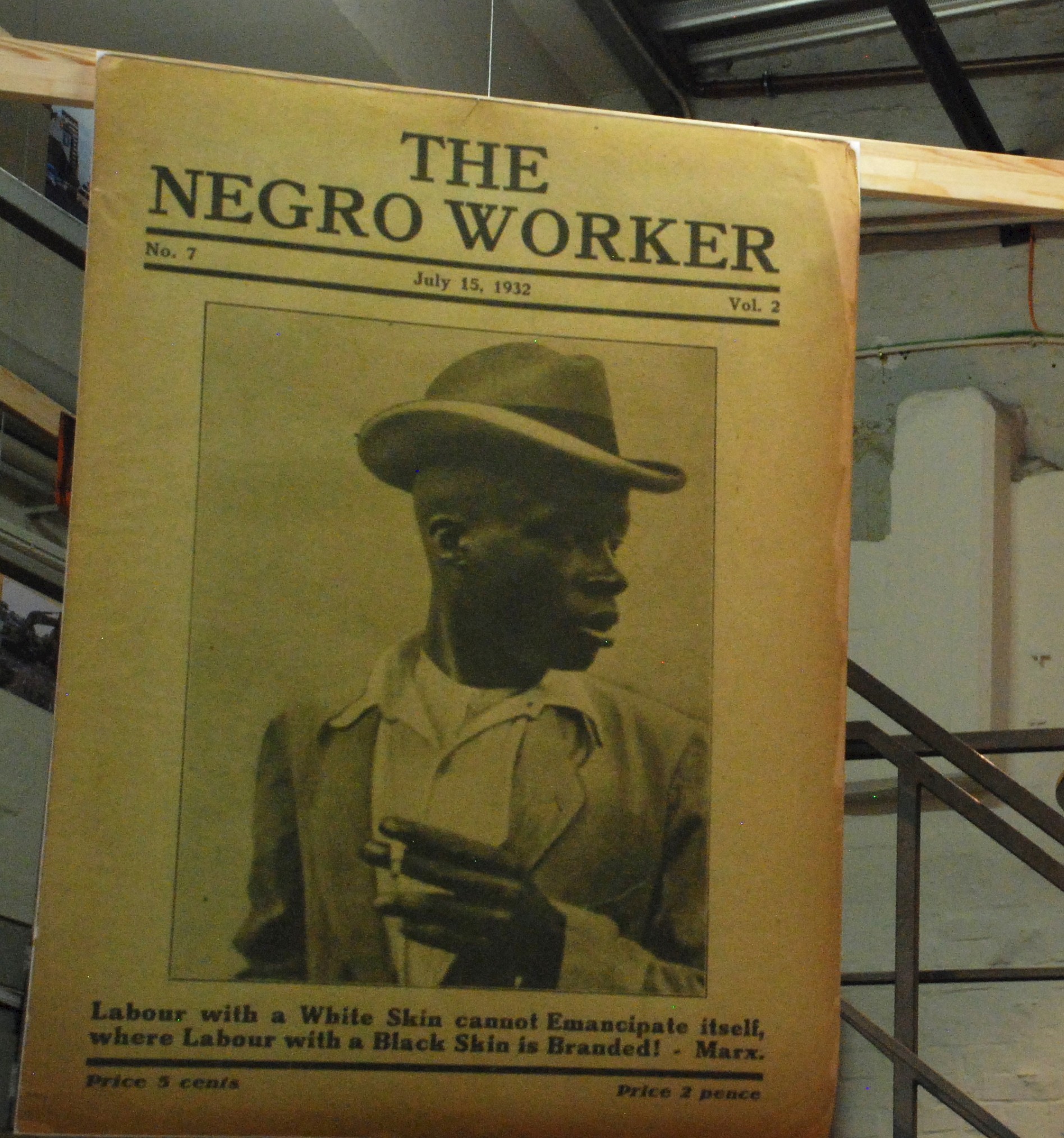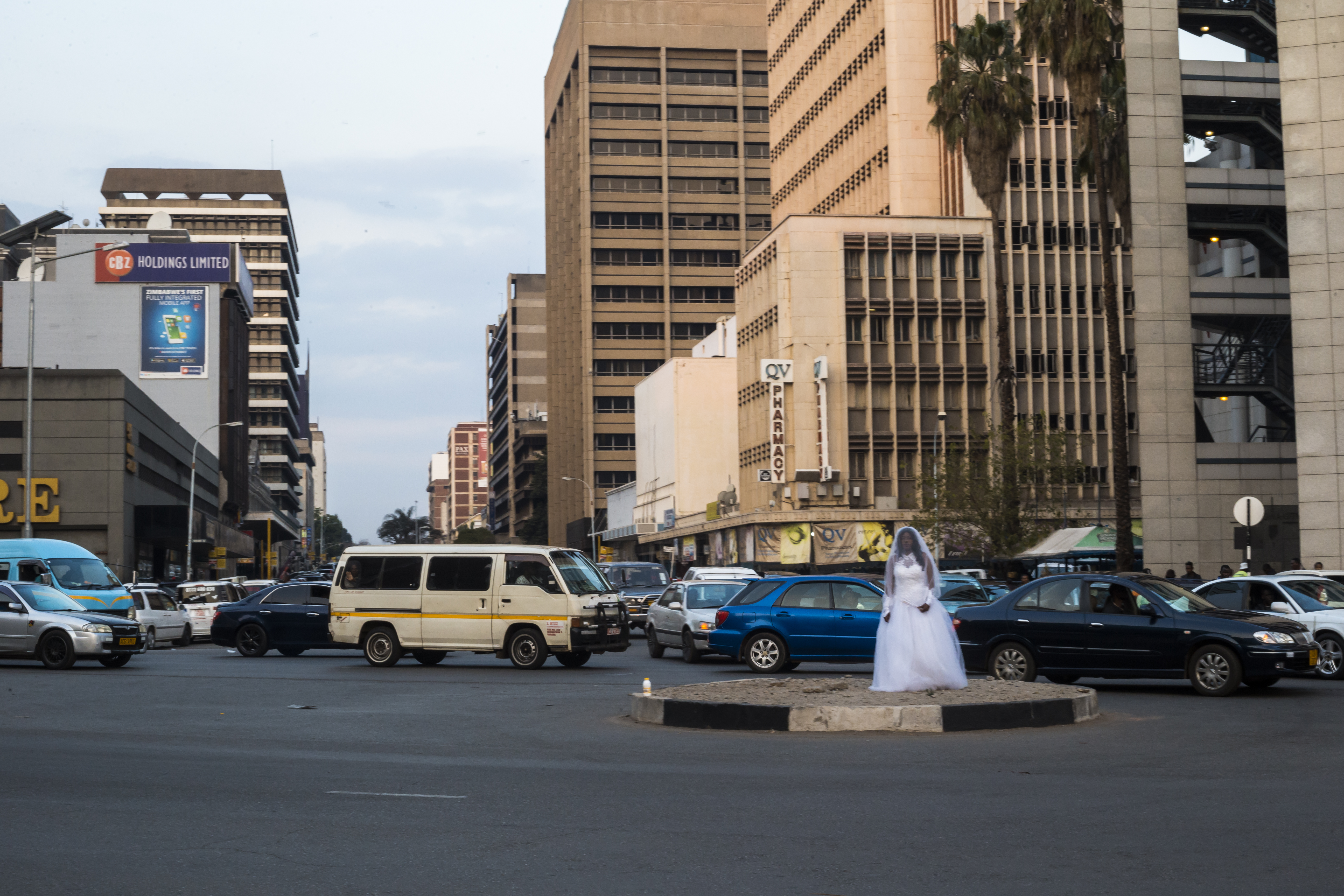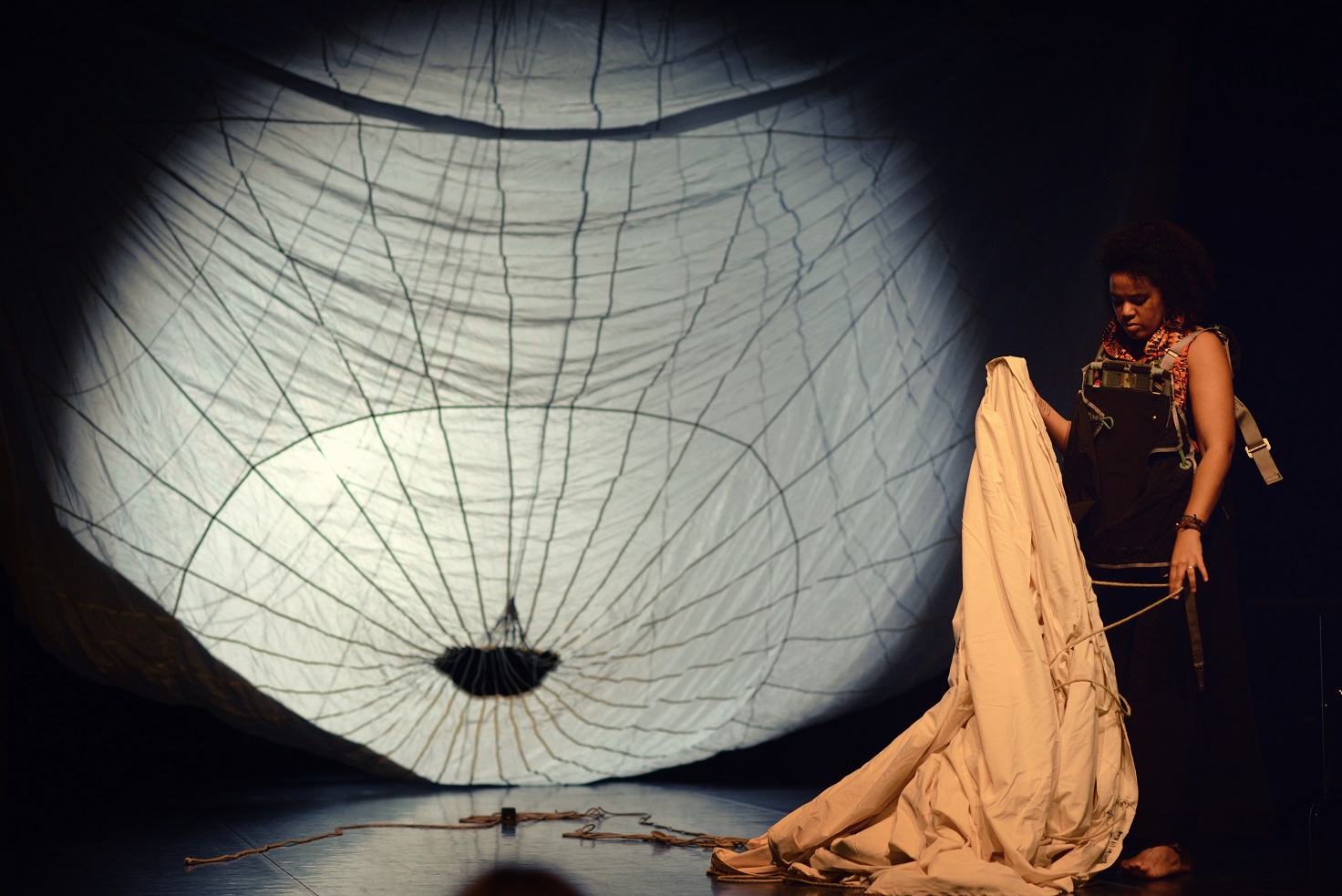That, Around Which The Universe Revolves:
On Rhythmanalysis of Memory, Times, Bodies in Space
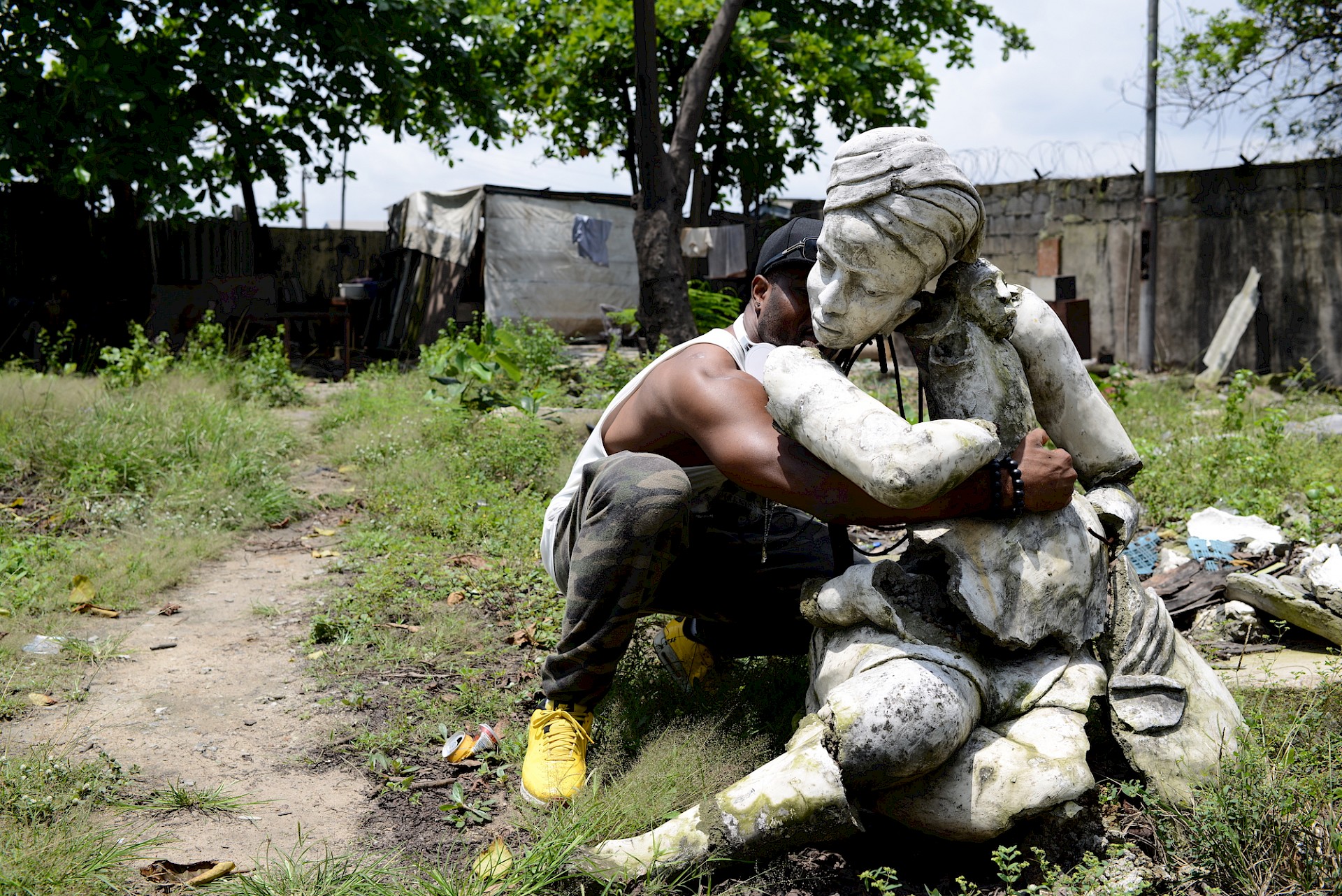
The research, performance and exhibition project THAT, AROUND WHICH THE UNIVERSE REVOLVES brings together visual artists, urbanists, photographers, performers and theorists to investigate the interrelations of space and time, memory, architecture and urban planning as well as historical and cultural heritage through Henri Lefebvre’s concept of Rhythmanalysis. The cities of Lagos, Düsseldorf, Harare, Hamburg and Berlin will be engaged in a network of research, exchange and artistic dialogues that interrogates their specific local urban epistemologies and histories, and connects them with those elsewhere in the world. The cities will serve as laboratories of an investigation into the temporal and spacial dimensions of everyday urban life, seen through the interrelations between the body, rhythm and urban structures. The project can be understood as an interplay between visual arts, performance, critical theory, urbanism, architecture and music conducted in a circuit of artistic and performative interventions in public as well as cultural spaces, a discursive program, exhibitions and a publication.
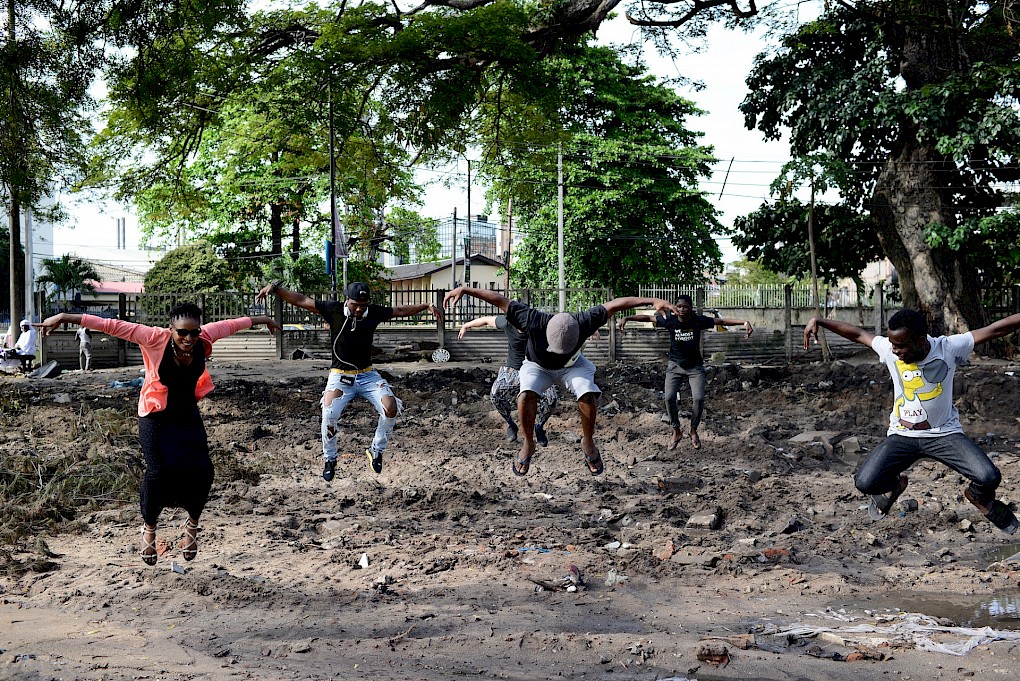
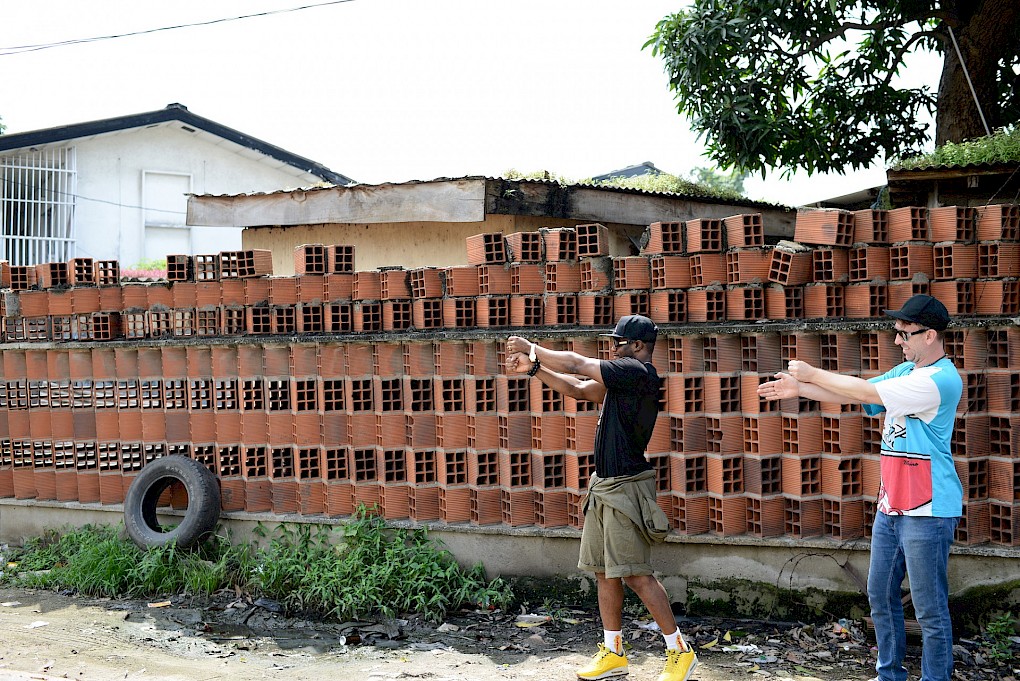
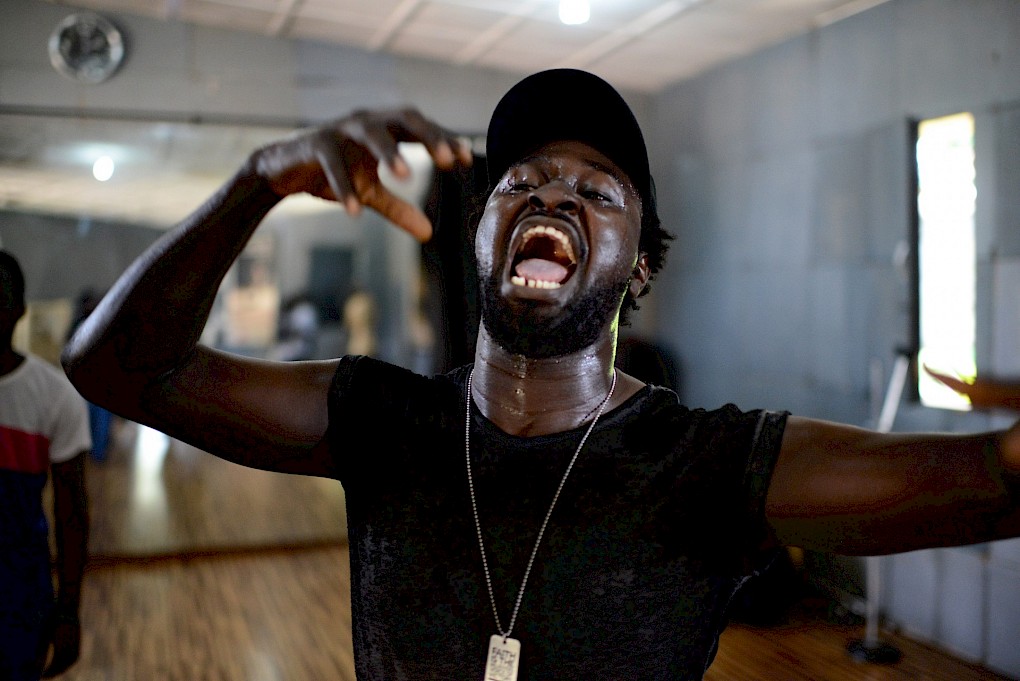
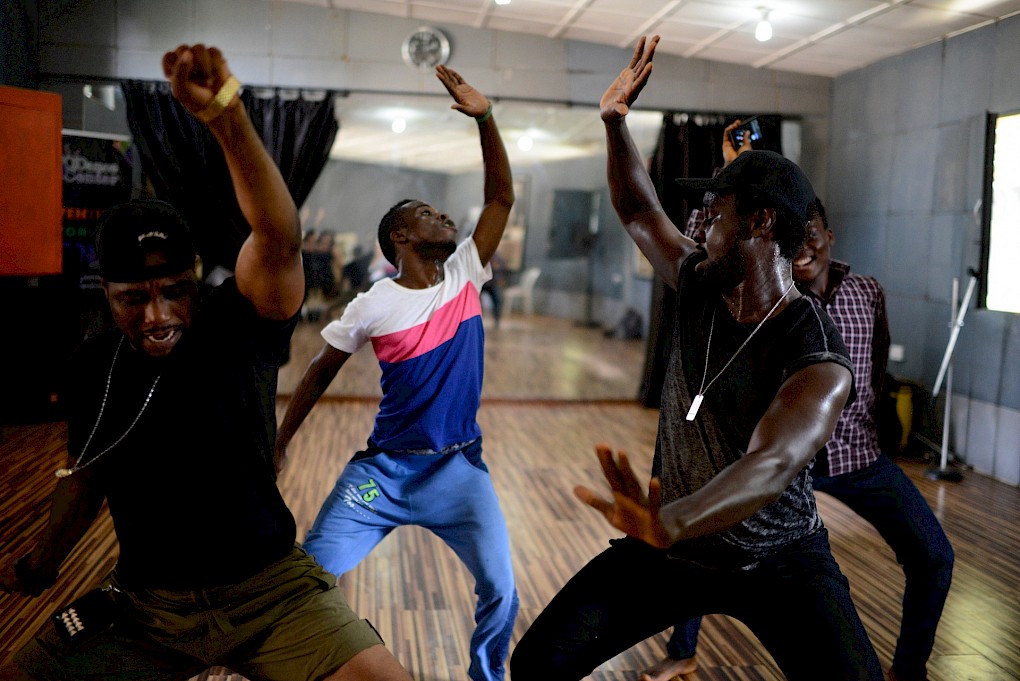
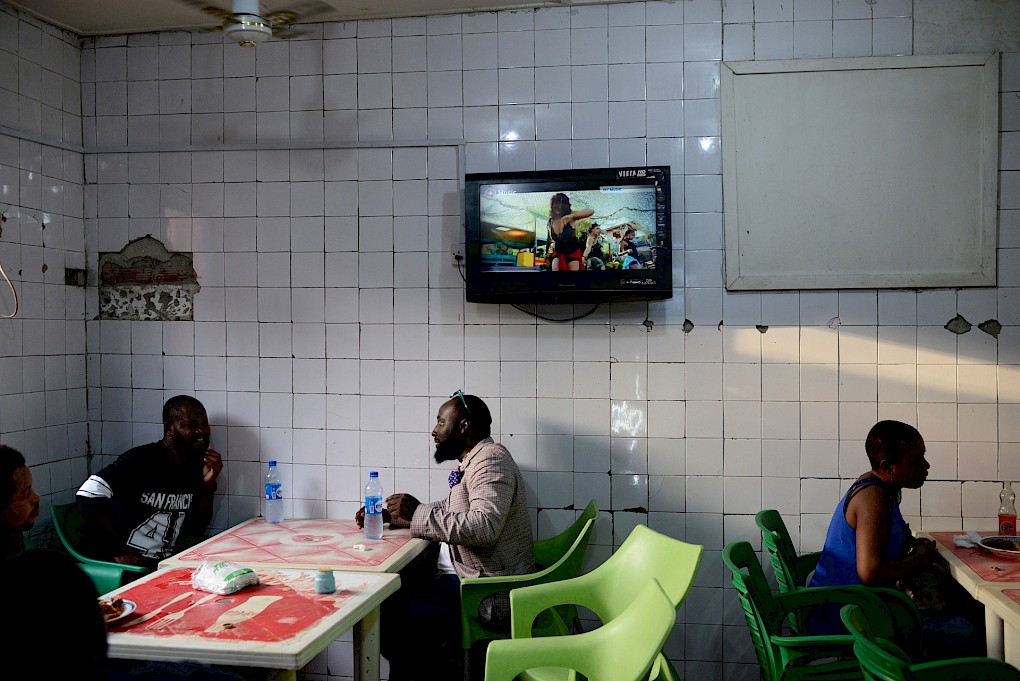
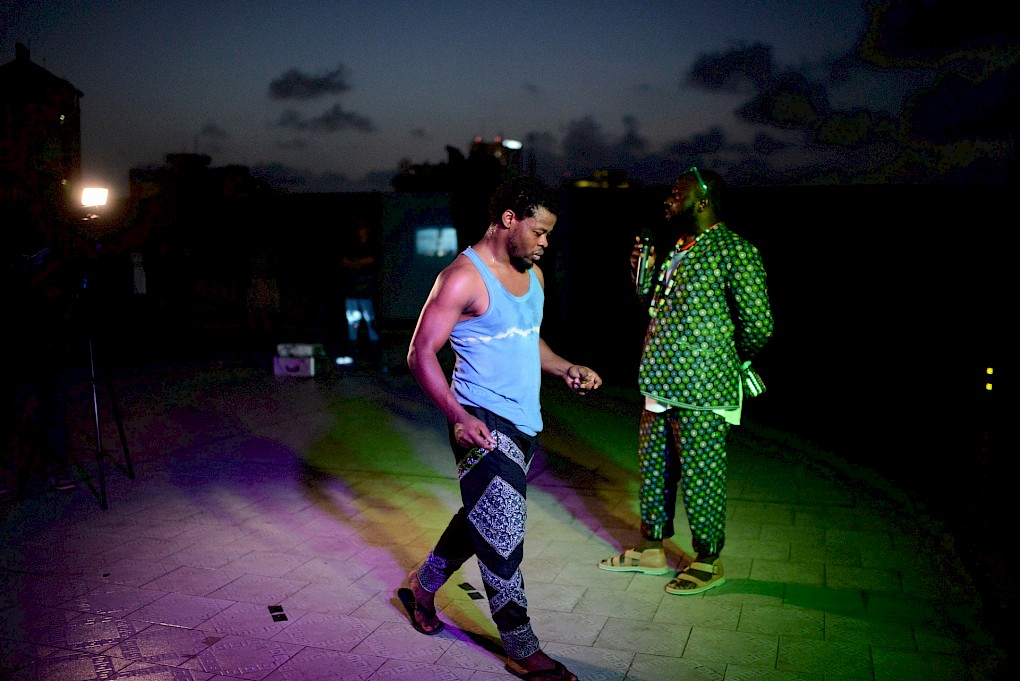
collaborators Gintersdorfer/Klaßen, QDance Center, Njelele Art Station, Hebbel am Ufer, FFT Düsseldorf, Kampnagel Hamburg
Artistic direction Bonaventure Soh Bejeng Ndikung
Curators Elena Agudio, Anna Jäger, Saskia Köbschall
CHAPTER 1 Lagos
At QDance Center
30.09.–07.10.2016
with Sunday Israel Akpan, Hauke Heumann, Qudus Onikeku, Monika Gintersdorfer, Franck Edmond Yao alias Gadoukou la Star
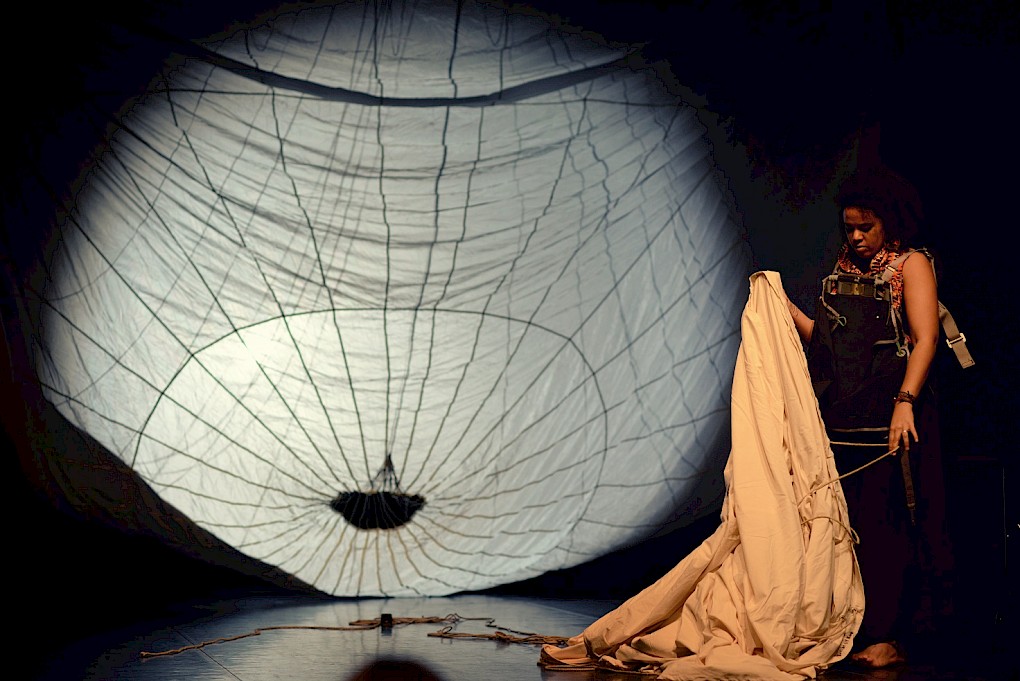
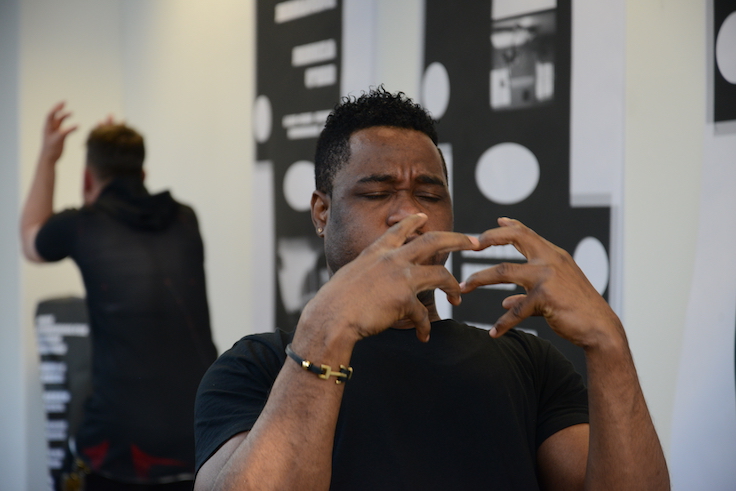
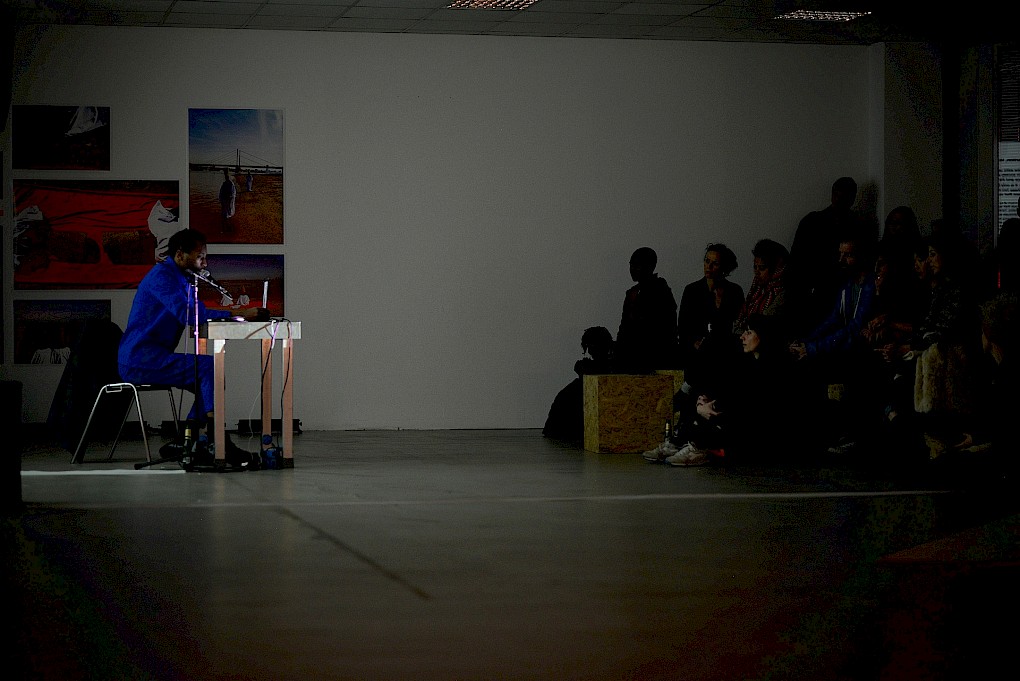
CHAPTER 2 Düsseldorf
At FFT Düsseldorf
Residencies 25.02.–27.03.2017
Programme 23.03.–26.03.2017
with Adéola Olagunjú, Christian Nyampeta, Nathalie Mba Bikoro, Rehema Chachage, Knut Klaßen, Jan Lemitz, Llyod Nyikadzino, Monika Gintersdorfer, Hauke Heumann, Franck Edmond Yao alias Gadoukou la Star, Gotta Depri
CHAPTER 3 Harare
At Njelele Art Station
18.08.–24.08.2017
with Gotta Depri, Monika Gintersdorfer, Hauke Heumann, Masimba Hwati, Knut Klaßen, Nancy Mteki, Kresiah Mukwazhi, Lucia Nhamo, Lloyd Nyikadzino, Tinofireyi Zhou
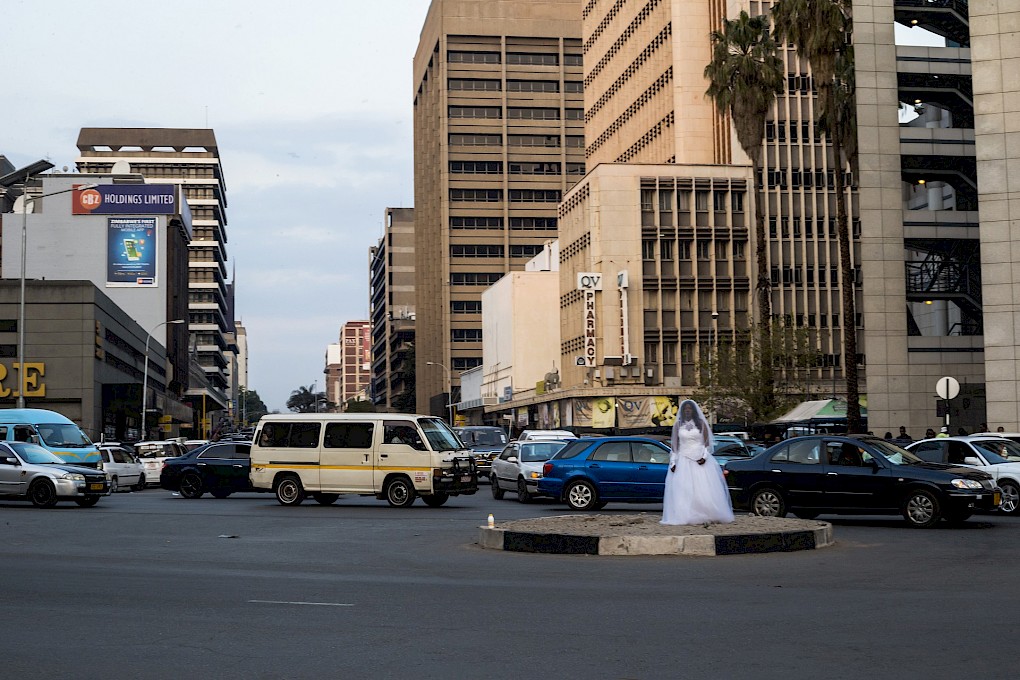
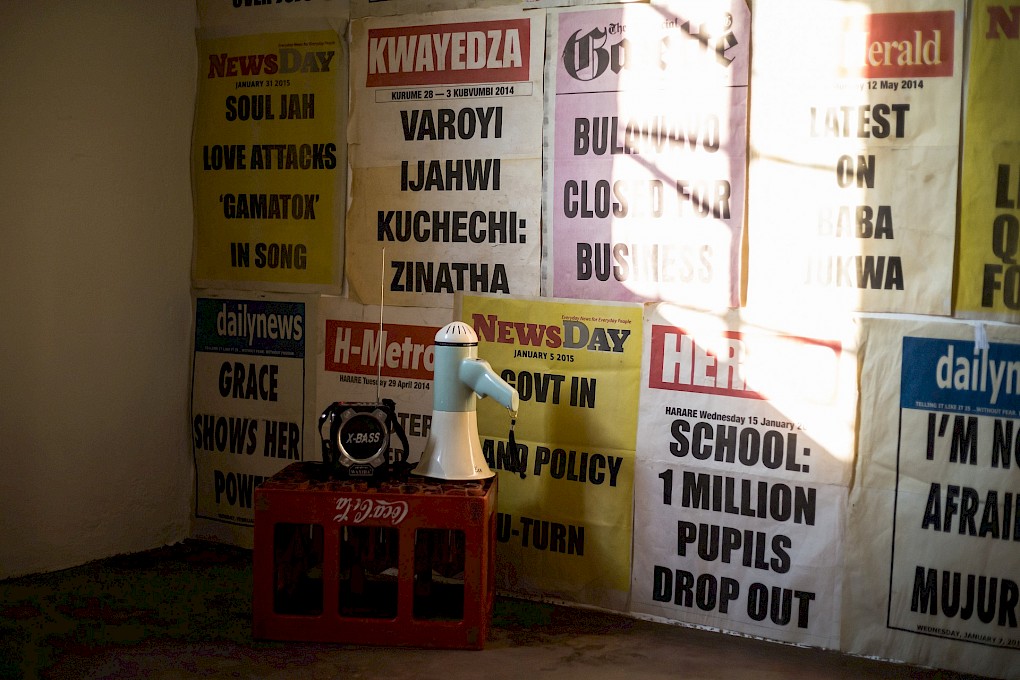
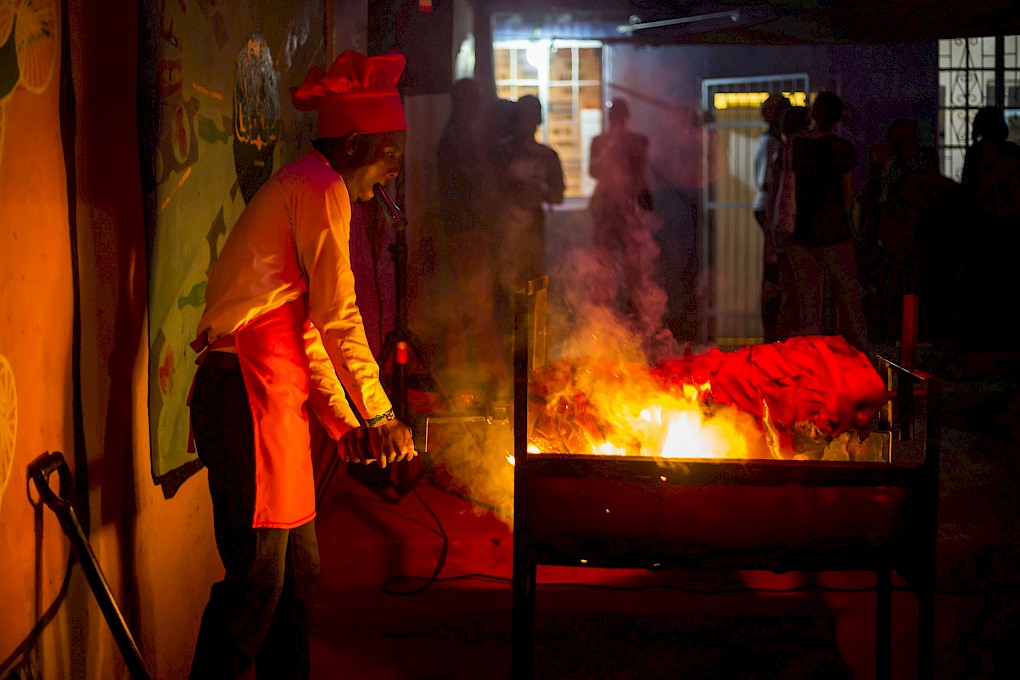
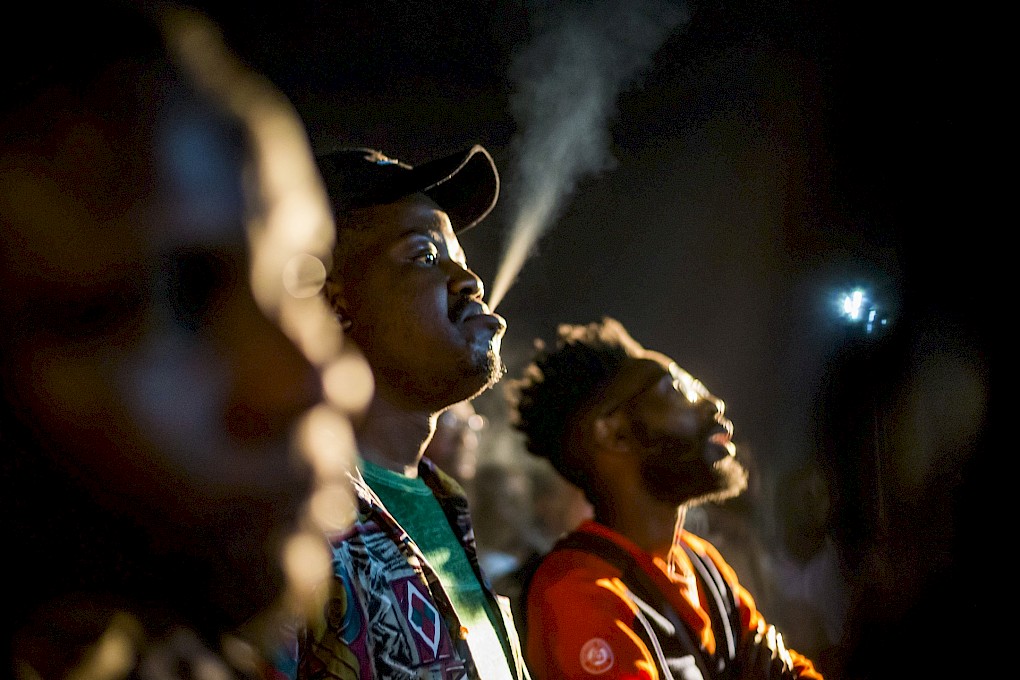
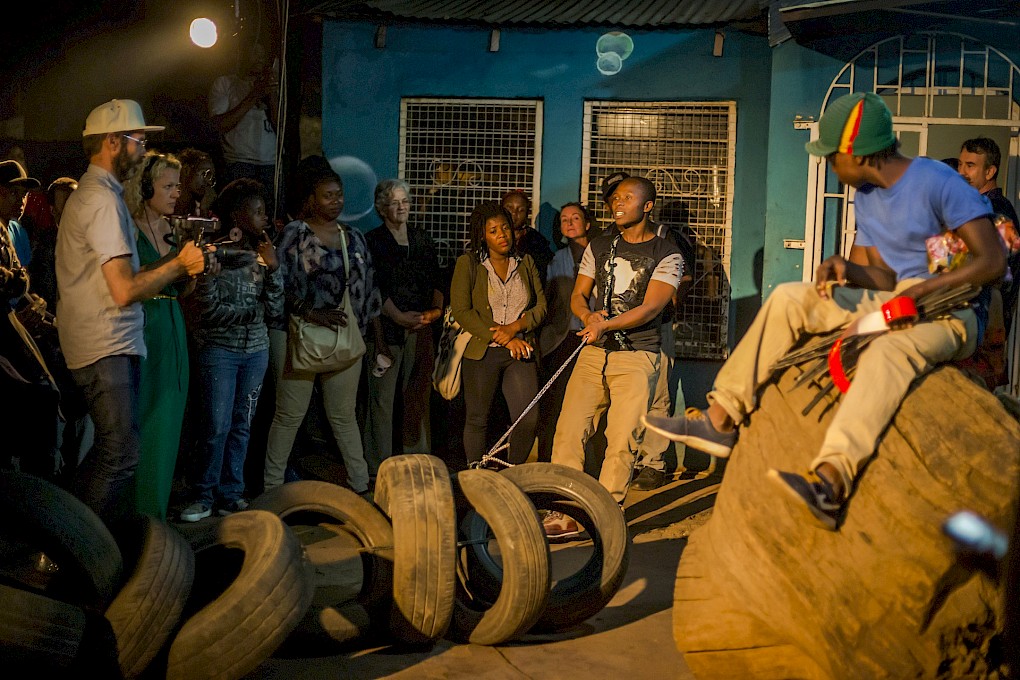
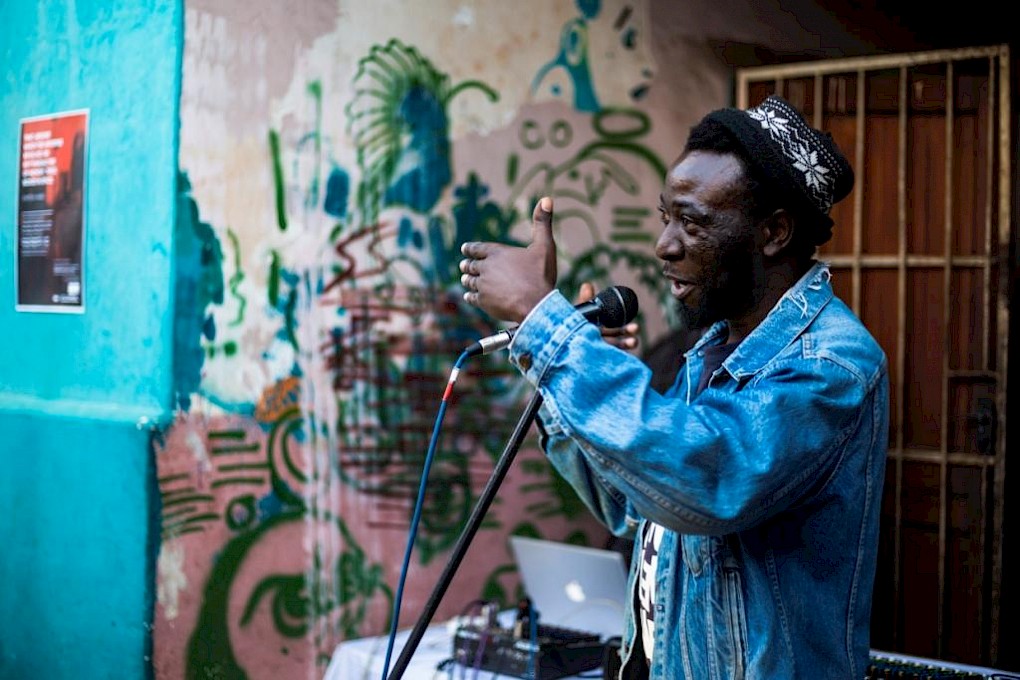
CHAPTER 4 Hamburg
At Kampnagel
19.10.–21.10.2017
With Georges Adéagbo, Simone Dede Ayivi, Gintersdorfer/Klaßen, Hauke Heumann, Natasha A. Kelly, Philipp Khabo Koepsell, Tanja Macheno, Nathalie Mba Bikoro, Lucia Nhamo, Lloyd Nyikadzino, Katharina Pelosi, Vyayanthi Rao, Tracey Rose, Lorenzo Sandoval, Louis Henri Seukwa, Greg Tate, Vassilis Tsianos, Franck Edmond Yao
CHAPTER 5 Berlin
Performance and Discursive Programme
01.12.–03.12.2017 HAU Hebbel am Ufer
With Maryan Abdulkarim, Akinbode Akinbiyi, Jacques Coursil, Lamin Fofana, Petina Gappah, Marque Gilmore, Gintersdorfer/Klaßen, Noa Ha, Moses Leo, Dorothee Munyaneza, David Muoz, Omar Nagati, Emeka Okereke, Robin Rhode, Biniyam Schelling, Carole Sidney Louis, AbdouMaliq Simone, Awilda Sterling, Greg Tate, Trinh Thi Minh-Hà
Exhibition
30.11.2017–28.01.2018 SAVVY Contemporary
With Akinbode Akinbiyi, Fikret Atay, Vartan Avakian, Allana Clarke, Eli Cortiñas, Masimba Hwati, iQhiya, Delio Jasse, Lamia Joreige, Maibritt Borgen/ Sofía Olascoaga/ Park McArthur/ Jacqueline Hoàng Nguyen and Sadia Shiraz, Christian Nyampeta, Trinh Thi Minh Hà

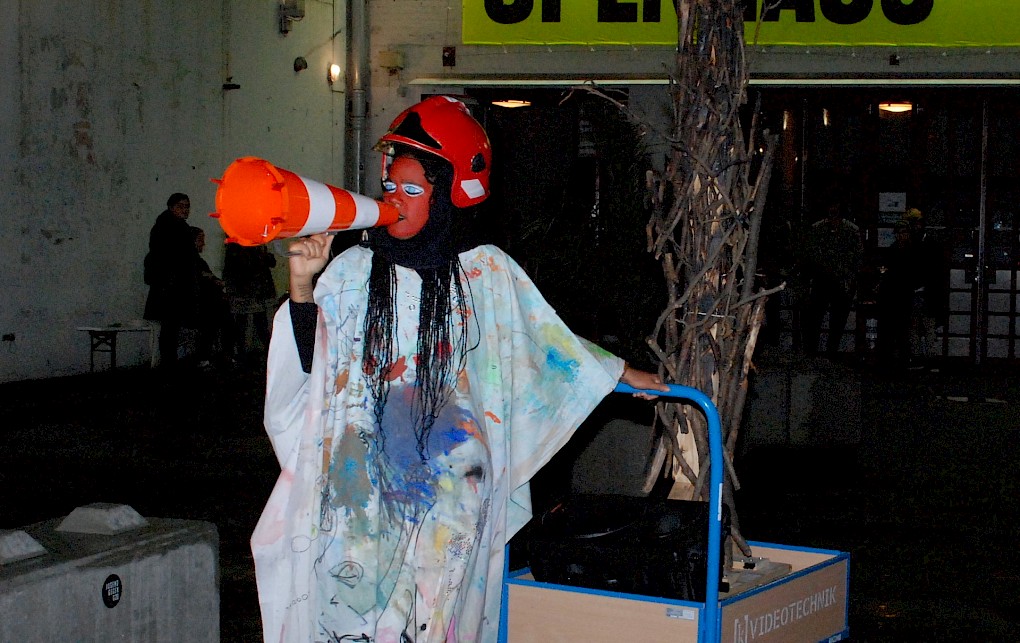
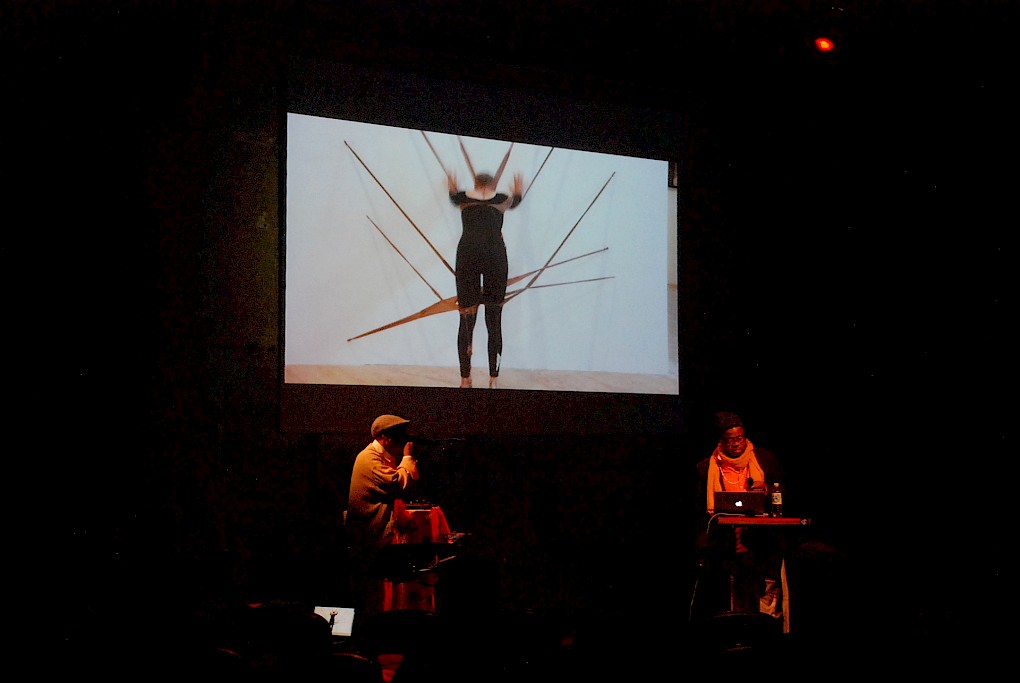
Everywhere where there is interaction
between a place, a time and an expenditure of energy,
there is rhythm.
The interconnection of a people’s or society’s memory and a specific space and time was a driving force behind the works of sociologist and philosopher Henri Lefebvre. In his posthumously published book Rhythmanalysis: Space, Time and Everyday Life, Lefebvre puts a spotlight on the concept of rhythm in his effort to synthesize a new scientific field of knowledge through rhythm analysis. In general terms, Lefebvre recognises rhythms in our everyday life, in our movements through space and our interactions with objects in space, i.e. in every interaction between the biological and the social. In this seminal work, Lefebvre tries to renegotiate the understanding of urban and rural space, things, media, politics etc. through the concept of rhythm. It is about analysing everydayness, the mundane, the repetitive, the “interference of linear and cyclical processes,” just as much as the cycle of life “birth, growth, peak, then decline and end,” and all these supply “the framework for the analyses of the particular, therefore real and concrete cases that feature in music, history and lives of individuals or groups.”
The project proposes the artist as a contemporary rhythmanalyst who could chronicle a delimited space and people. Contemporary African artists and performers are invited to investigate how heritage is produced, reshaped and unmade within cities as archives of rhythms, not only on the continent but also in Germany. The performative interventions and discursive programs in Düsseldorf, Berlin and Hamburg will invite African and Diasporic artists to investigate the history of African presence and resistance in Germany to rethink temporal-historical and spatial-geographical urban concepts. The project will give room for reflections on the intimate interrelations between African and German cities by investigating, for instance, German cities’ fiercely debated colonial histories choreographically, by way of a Rhythmanalysis that introduces a play of encounter, drawing lines between past and present, between buildings, monuments, stories and the everyday movement of people through them. The project’s focus on urgent contemporary urban topics like gentrification, wage gaps, security zones, architecture and urban planning, exclusion, movements, creative spaces and communities through research and African artistic practice, will be an important and innovative contribution to the reception of Lefebvre’s exceptionally significant philosophical and sociological theories that will be put into life and work, rhythm and contemplation within the circuits of this project.
The rhythmanalysist is capable of listening
to a house, a street, a town
as one listens to a symphony, an opera.
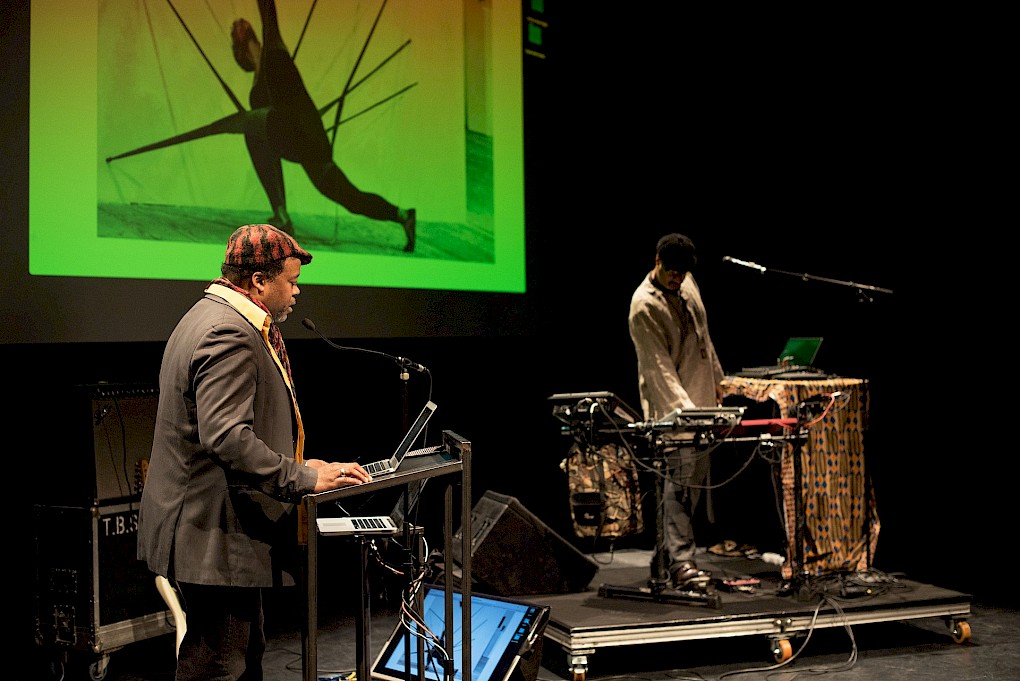
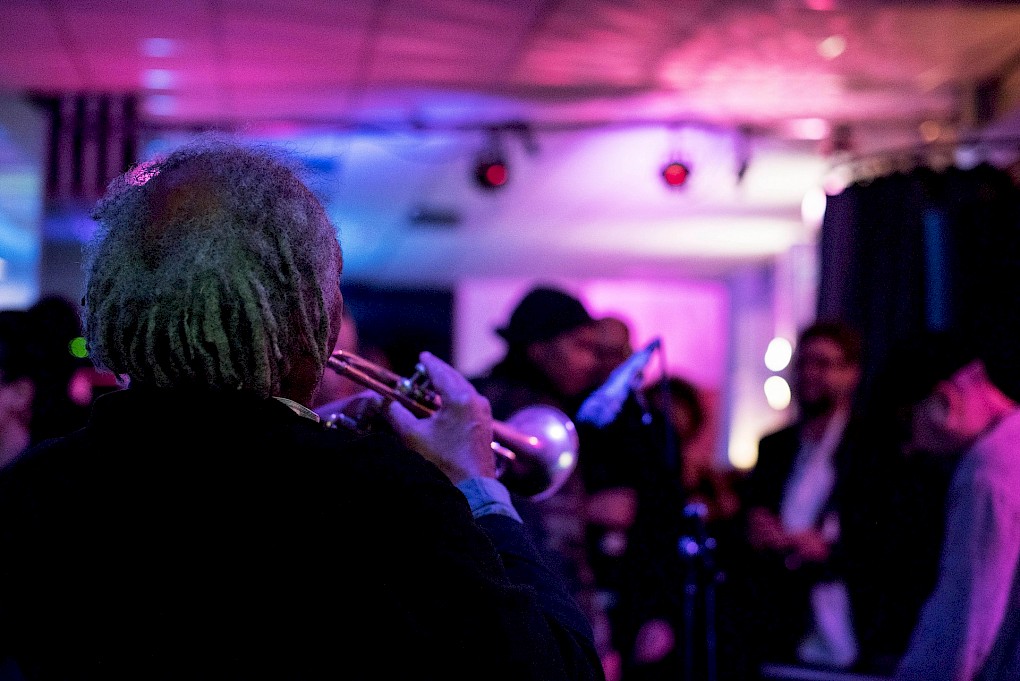
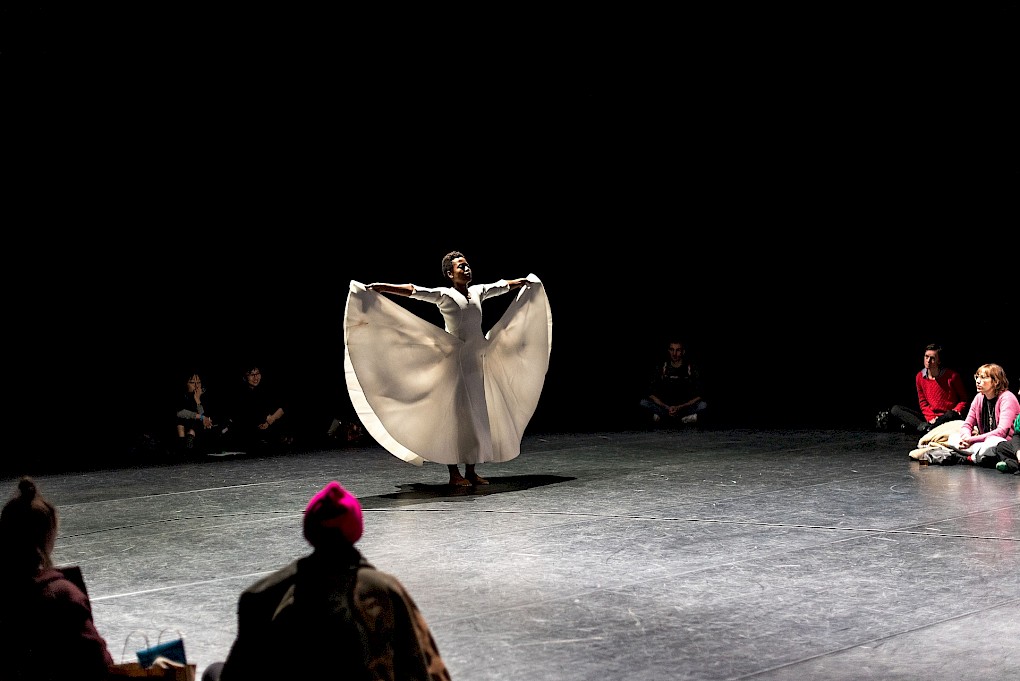
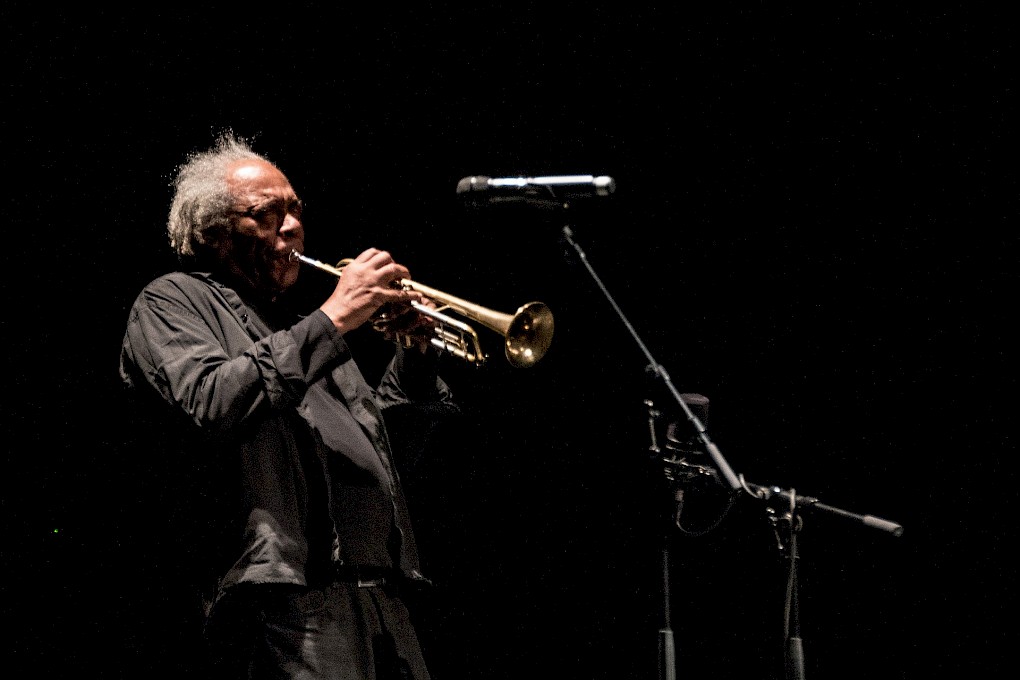
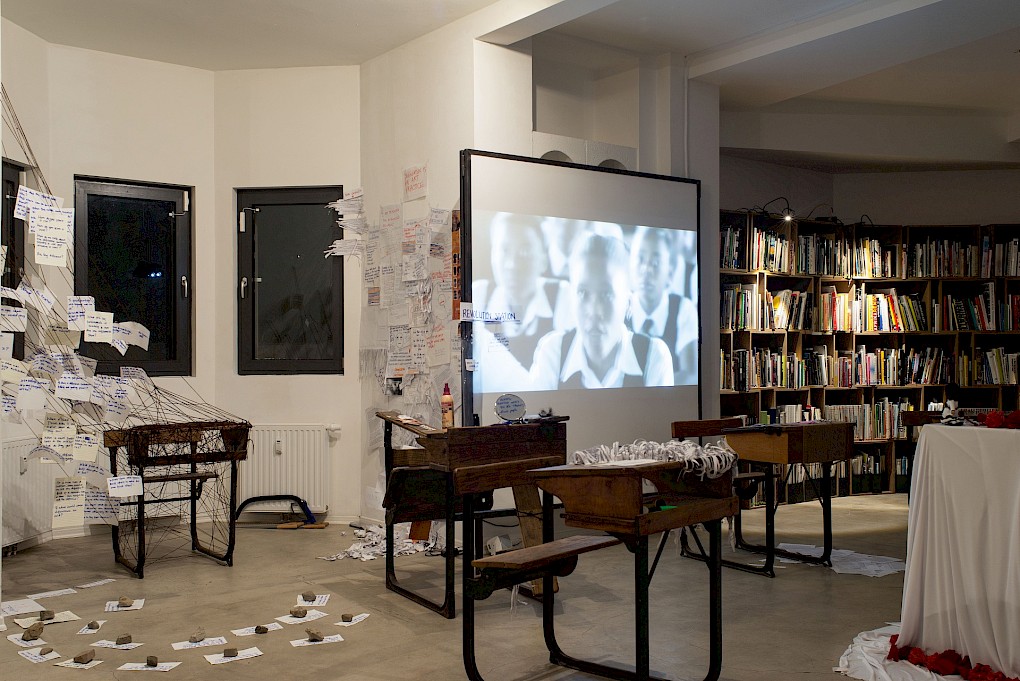
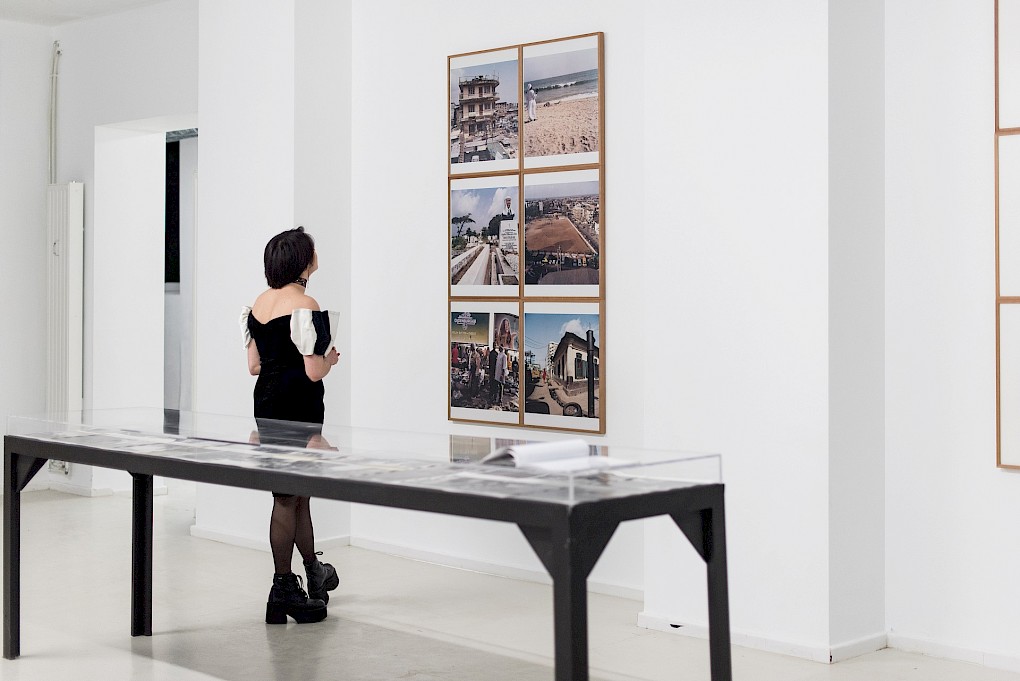
Funding The project is funded by the TURN fund of the German Federal Cultural Foundation.


